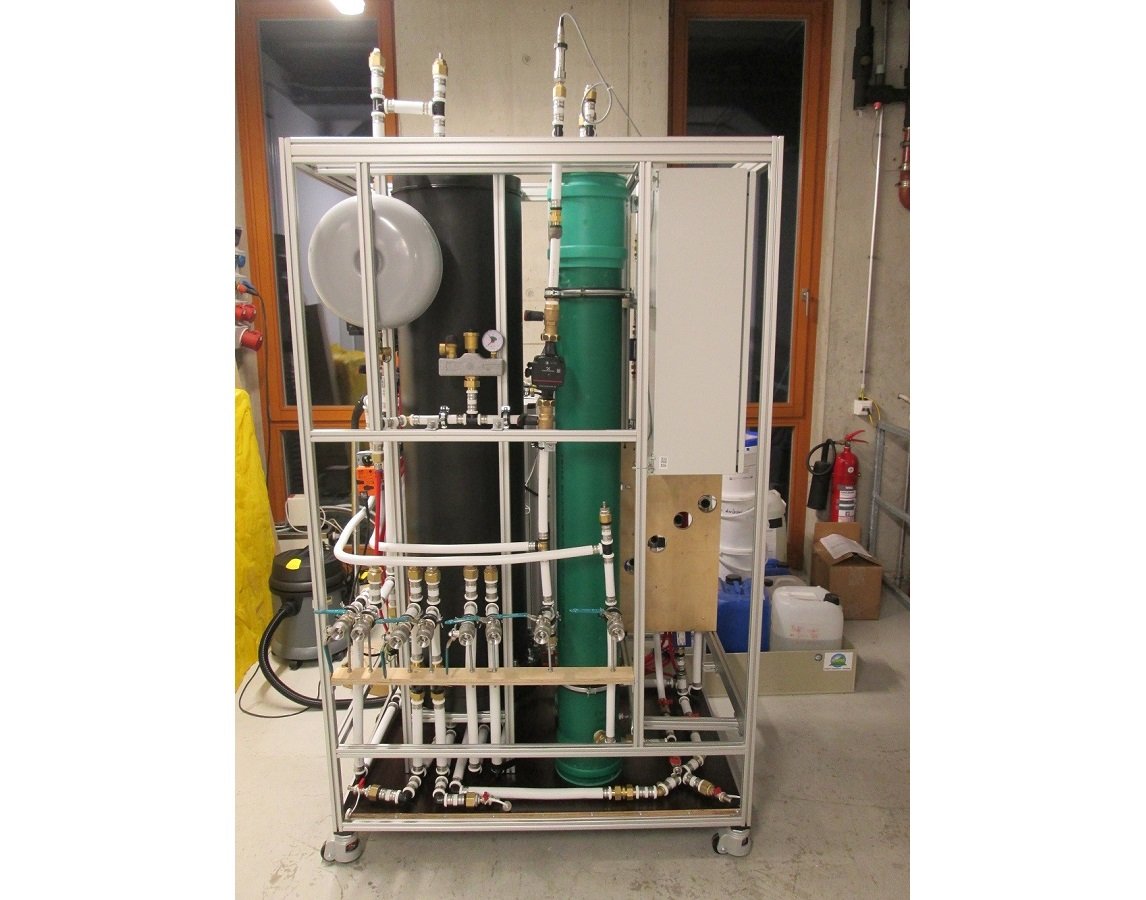The research project focused on the development of a modular thermal management module for an industrial component cleaning machine, for which the two project partners Bavarian Center for Applied Energy Research (ZAE Bayern) and the company MAFAC E. Schwarz GmbH & Co. KG were responsible for. As part of the project, researchers at Fraunhofer ISE have integrated an innovative refrigeration circuit into this module that uses the natural refrigerant propane. "As the cleaning and drying processes of the machine are carried out at both low and high temperatures, it is an ideal application for a heat pump," explains project manager Clemens Dankwerth from Fraunhofer ISE. The thermal management module operates in standby and is coupled with an existing cleaning machine via the process and control technology to supply the machine with useful heat and cold provided by the heat pump.
Previously, the heat and cold supply of the cleaning system was purely electrical. In the course of the new application, the two separate processes could be transferred into one process. The project team succeeded in optimally designing the heat pump so that 255 grams of propane in the refrigeration circuit was sufficient for operation. This means that the entire system (cleaning machine with thermal management module) can be safely installed in rooms with a floor area of 16 square meters or more.
A refrigerant-reduced cooling circuit had already been developed in advance as part of the "LC150" project. Here, a project team from Fraunhofer ISE had developed a refrigerant circuit based on propane that falls below the allowed maximum limit of 150 grams of propane. Thus, the heat pump can be operated independently of the safety requirements that apply to indoor heat pump installations with flammable refrigerants.
High energy efficiency and cost reduction
Retrofitting the cleaning machine with the new modular functional assemblies for external heat and cold provision resulted in a significantly higher energy efficiency. The best values are delivered by the heat pump, which achieved a combined heating and cooling performance of 5.6 in relation to the electrical power used. The power requirements for heating the process water (cleaning, rinsing) and for heating the flow air for drying were cut by half, while the power used for heating the fresh water was reduced by as much as 80 percent. By recirculating the exhaust air, over 10,000 liters of fresh water can be saved annually, thanks to a new type of condensation unit that efficiently recools the process exhaust air, allowing the available cooling from the heat pump to be used in the cleaning machine in line with the process.
In a two-shift operation with five production days per week and 48 production weeks per year, the new thermal management module leads to cost savings of around 4,800 euros per year and CO2 emission savings of around 12,600 kilograms per year.
"The use of heat pumps can make a significant contribution to the decarbonization of industrial processes," says Clemens Dankwerth. Their application is also promising in other processes that operate in a similar temperature range (50-70°C), such as large dishwashers in canteens.
The "ETA in Existing Facilities" project started in November 2020 with a planned duration of three years. Funding was provided by the Federal Ministry for Economic Affairs and Climate Protection (BMWK) as part of the German government's seventh energy research program. The project is supervised by Project Management Jülich (PTJ).
